Strange goings-on in Beijing spark questions about Xi Jinping’s judgment and control
It’s staggering that the world is not more worried and obsessed, by the strange goings-on in Beijing. Is Xi increasingly affected by isolation and paranoia?
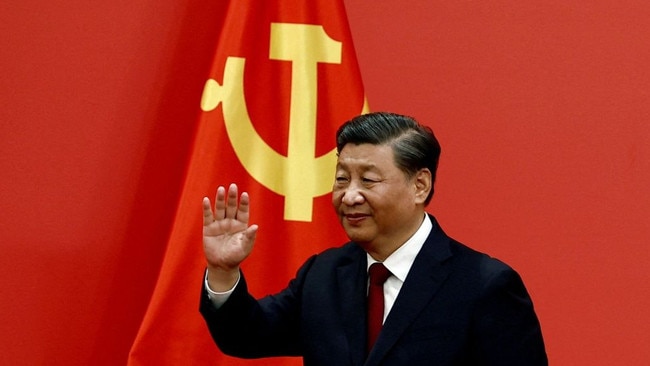
“His response on North Korea was very much party-line. Of course, why would they share any of their intimate dealings with North Korea with me? Or our Prime Minister?” – Bob Carr, Diary of a Foreign Minister, on his first meeting with Wang Yi, then and now China’s Foreign Minister, in 2013
Consider this utterly implausible scenario. Anthony Albanese sacks his defence minister and deputy prime minister, Richard Marles, as well as foreign minister Penny Wong. Both disappear from public view. Wild rumours swirl. Both may be in custody. The PM also sacks the senior military commanders. They too disappear.
If that happened in Australia, the nation would not only be convulsed, the government certain to fall, it would cause significant international instability. Australia is a big economy and a key ally of the US. It would be front-page news around the entire world.
Yet this extravagantly outlandish scenario is playing out right now in China. We have become somehow so accustomed to, so socialised into, purges, arrests, midnight disappearances, ridiculous explanations or absolute official silence in the world’s greatest Leninist dictatorship that it’s more or less business as usual.
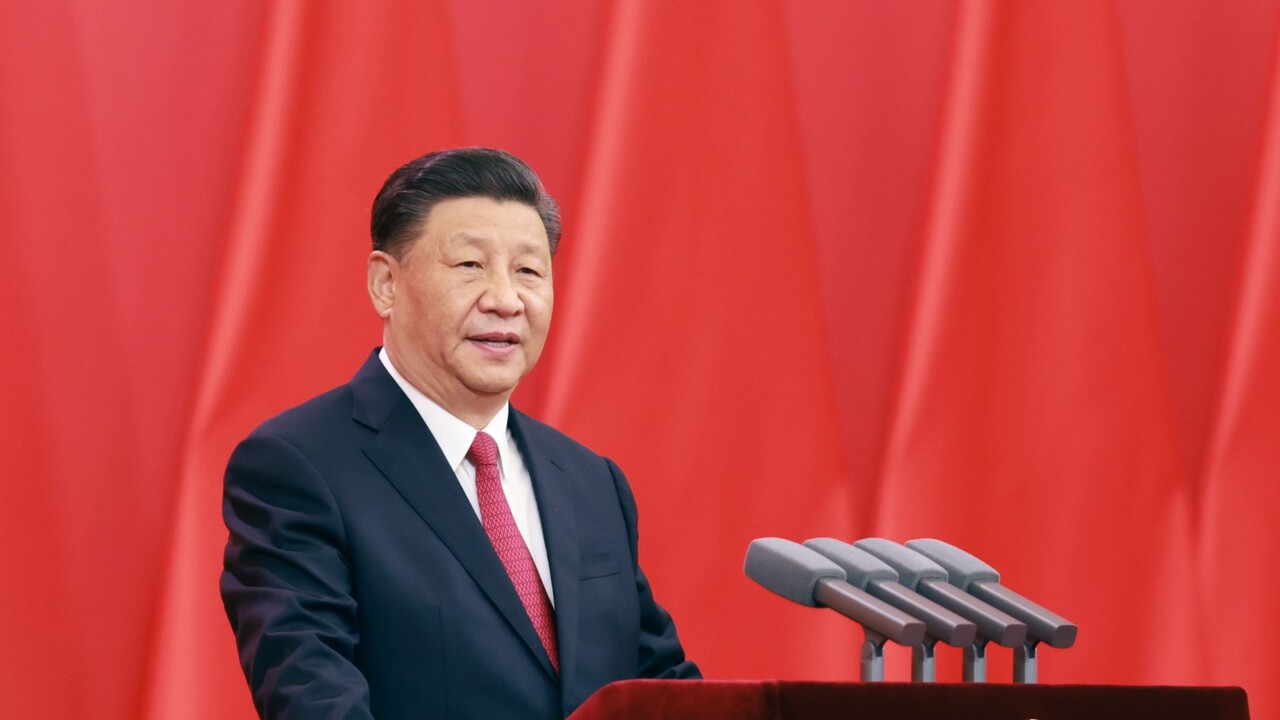
China’s defence minister is theoretically still in office. General Li Shangfu became defence minister only in March. He also became a state councillor. He sits at the right hand of the emperor, or president, Xi Jinping. Chinese themselves typically discuss politics now in terms of a royal court.
Li disappeared from public view in late August. His absence from meetings with Vietnamese counterparts was blamed on that hardy Leninist perennial – “a health condition”. The assumption is Li is in custody. At a Beijing press conference, the foreign ministry spokeswoman confessed, probably truthfully, she had no information.
The foreign ministry has very little power in Beijing.
Li’s disappearance followed the sacking in July of General Li Yuchao, head of China’s Rocket Force, as well as General Xu Zhongbo, its political commissar. The Rocket Force controls the nuclear weapons. Officials from outside the Rocket Force were brought in to replace the generals, indicating Xi’s lack of confidence in the next rank of Rocket Force leaders.
There have been other People’s Liberation Army purges.
All this follows the sacking of Qin Gang as foreign minister in July. He’d been in the job only since December last year and was hand-picked for ultra-rapid promotion by Xi. Initially his disappearance also was attributed to health problems. However, he was soon sacked. The Wall Street Journal reports that senior Communist Party officials officially have been briefed that Qin was sacked over “lifestyle issues”. Before becoming foreign minister he had been, from July 2021, China’s ambassador to Washington. According the WSJ, Chinese officials were also briefed that Qin, while ambassador, had an ongoing affair that led to a baby being born in the US who, in a wonderfully bizarre twist, would have a notional right to US citizenship. The baby made Qin obviously vulnerable.
The internal Chinese briefing said the official investigation into Qin was focused on whether the affair, or his other behaviour, might have damaged national security. It also has been rumoured in the US that an American intelligence agency approached Qin, unsuccessfully, to try to get him to give secret information to the US, on the basis that he would not want his personal affairs disclosed.
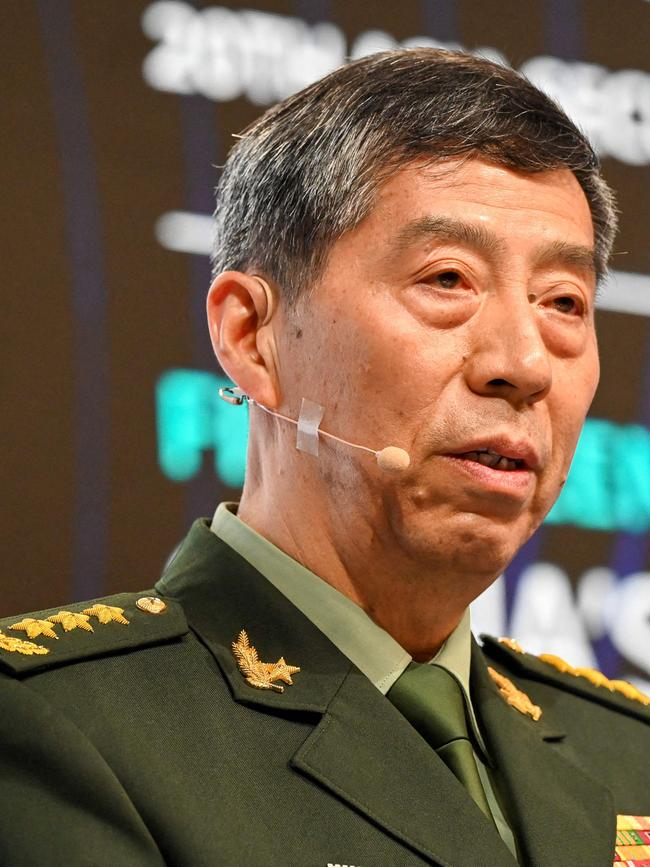
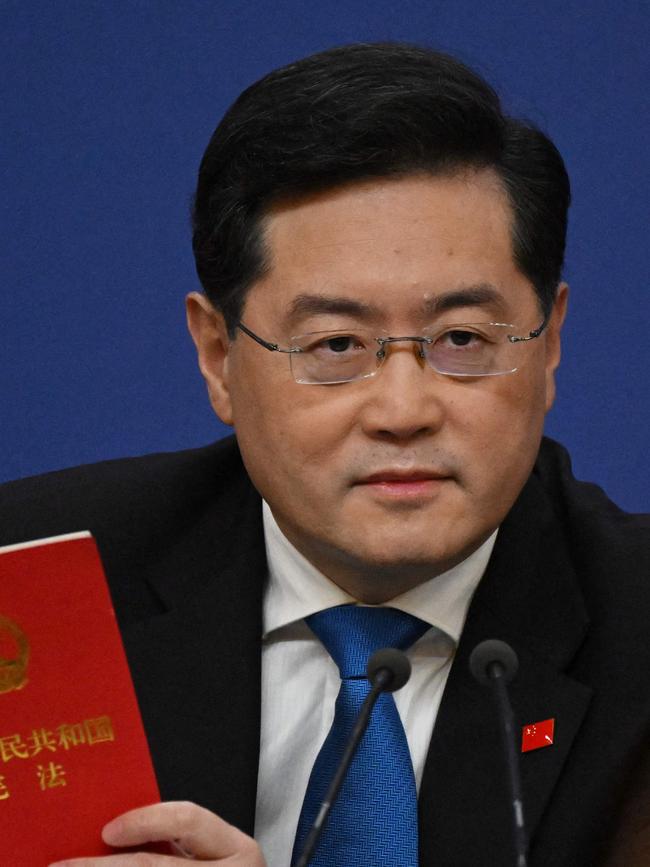
Qin is suave, smooth, a ladies’ man, was allegedly keeping his mistress in some luxury, appeared to have unexplained sources of personal money and previously had acted in a position in the Chinese foreign ministry in which he was intimately involved in many of Xi’s overseas trips. He is said to have won great favour with Xi during this period and even earned favourable notice from Xi’s wife.
Qin’s demise has meant the entire foreign ministry is paralysed. Beijing replaced Qin as foreign minister with his predecessor, Wang Yi, but the whole ministry is under intense scrutiny as Qin’s circumstances will be exhaustively examined by Beijing’s exhaustive interrogators. So the foreign ministry has been unable even to appoint a new vice-foreign minister in charge of North America.
At a much lower level of strangeness, but still remarkable, was Xi’s own decision effectively to boycott Narendra Modi’s G20 summit in New Delhi. The Chinese president did recently attend a smaller summit in South Africa, but even then didn’t turn up in person for his own speech.
At the same time, the Chinese economy is in a mess, with slow growth, high youth unemployment, a massive investment overhang and giant property companies on the brink of insolvency.
One other thing – the Ministry of State Security has started issuing authoritative statements on Chinese foreign policy. This recalls Soviet era communist culture. Chinese citizens at large have been urged by their government to watch out for foreign spies and report any suspicious activities to the authorities. The MSS is way up in influence. This looks to be part of the evolution of Xi’s China into a comprehensive security state.
And just bear in mind that China is the world’s second largest economy, the second largest military power, is building new nuclear weapons as fast as it physically can and is the chief cause of concern for future war in the Indo-Pacific.
Amid all that, it’s staggering that the world is not more discombobulated, indeed not more worried and obsessed, by these strange goings-on in Beijing.
But just what is going on?
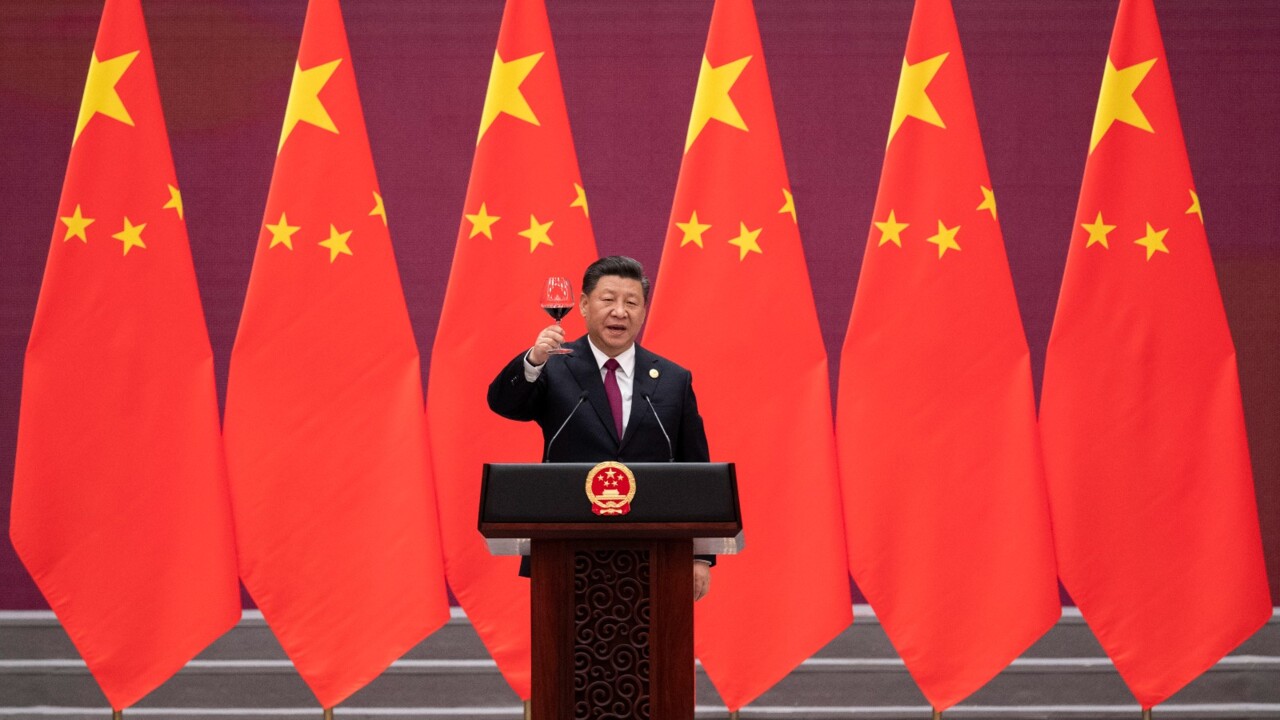
Is Xi losing some degree of control? Is he losing his grip? Is he losing his judgment, appointing people he then has to sack? Is he increasingly affected by the isolation and paranoia that typically come to haunt long-term dictators? Are there other power plays afoot? What does it all mean for the future conduct of policy from Beijing?
Everyone I asked about this, at every level of official and academic knowledge, was honest enough to say they didn’t know. But several facts are inescapable and several lines of speculation pretty plausible. Dennis Wilder had a long career in the CIA as a China analyst, and served in various White House roles, including as a key China related official in the National Security Council. He’s now a fellow at Georgetown University.
Wilder tells Inquirer the case of the former foreign minister, Qin, should be considered separately from all the PLA sackings. Once it came to light publicly that the foreign minister had a love child with citizenship rights in the US, and all the other scandal surrounding Qin, Xi could not possibly have kept him in place.
What will be Qin’s fate? “Normally they put these guys in detention for three months,” Wilder says. “That’s to make sure they get all their co-conspirators. They basically force them to confess and then turn them over to the judicial process.
“The military cases, on the other hand, could involve massive corruption. The Rocket Forces have been building these 300 new (missile) silos. It’s a huge project involving state-owned enterprises outside the military. The opportunities for corruption in the Chinese system are very great.
“In July they announced they were looking into the equipment purchase side of the PLA dating back to 2017.
“Li Shangfu was head of that department from 2017 until he became defence minister. What triggered this right now, I don’t know. Maybe some new information came to light.”
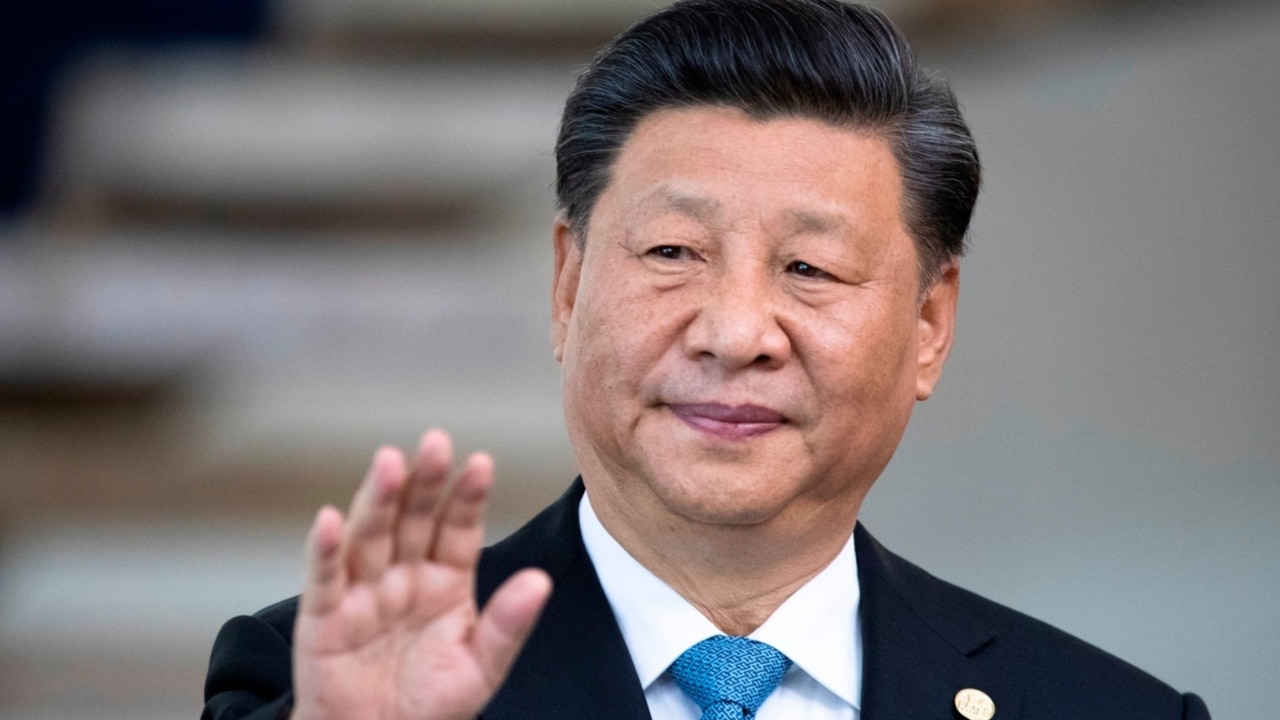
Wilder is drawn to one particular theory, favoured by some in US intelligence, which was ventilated by The New York Times. That concerns the Chinese spy balloon that drifted across North America until it was shot down by US forces in South Carolina in February. Wilder believes, like everyone else, that such a clandestine spying effort against the US would have been authorised, in some manner, by Xi. However, he thinks the balloon may have been intended to spend some time more or less unnoticed in the vicinity of Hawaii, but then drifted off course towards the US mainland. As is the case in every one-man dictatorship, senior figures, in this case in the PLA, would be very reluctant to tell Xi if something was going wrong. They might have hoped the balloon would crash into the ocean, or some obscure point on land, on its own. Then they wouldn’t need to own up to a big mistake.
Wilder points out that when US intelligence agencies carry out a covert operation they get some kind of authorisation from the president but don’t thereafter brief him about the operation on a continuous basis.
Controversy surrounding the balloon led to US Secretary of State Antony Blinken cancelling a scheduled visit to China. If Xi was kept in the dark, so this theory goes, he would have been extremely cross with the military and perhaps looked for some PLA targets to unleash his fury on.
This theory is certainly plausible. It ultimately comes from US intelligence. In the wilderness of mirrors in which all analysis of Chinese leadership politics now takes place, it’s worth noting it’s a convenient story for Xi and, in a way, Joe Biden. It discounts the idea that Xi authorised the balloon to travel across the continental US and puts as benign a spin as possible on the subsequent military sackings. It’s worth recalling the caution from Fred Teiwis at the head of this piece. Could the Chinese even have planted this story on US intelligence?
Wilder makes broader judgments: “There’s been a real erosion of respect for Xi. It started with his decision to stay on for a third term. Xi is tightening controls everywhere, he’s clearly worried. He’s more insecure than I’ve ever seen him.”
What does this likely mean for Xi’s future actions? “The upside is he’ll want to stabilise relations with the US. The downside is if he feels he’s losing power he might start a crisis on Taiwan to rally everyone around the flag.”
There’s another level of embarrassment for Xi in all this. He has been running a ferocious anti-corruption campaign for 10 years, yet apparently corruption is still pervasive at the highest levels of Chinese leadership. The system make corruption incurable. There is no free press or independent judiciary. PLA salaries, even at senior level, are extremely modest, yet the contracts they supervise run into hundreds of billions of dollars.
The whole corruption issue raises, in Wilder’s view, the question of whether the PLA would be much better able to perform in sustained operations than the Russian army, which also turned out to be crippled by corruption.
Jude Blanchette, who holds the China chair at the Washington based Centre for Strategic and International Studies, tells me he thinks Xi’s whole vast anti-corruption campaign has been about 20 per cent motivated by a genuine desire to reduce corruption and about 80 per cent by a desire to exert political control.
Like Wilder, Blanchette doesn’t claim definitive knowledge of what’s happening behind the scenes but draws attention to its destabilising potential: “China is a globally integrated, nuclear-armed, heavily militarised, regional and global power. Purges are not unusual in communist, Leninist systems. It’s less how unusual and more how worrying what’s happening in China now. Is China starting to politically implode or is this just another round in a typical purge campaign that will settle down? These authoritarian systems look solid until one day they’re not.”
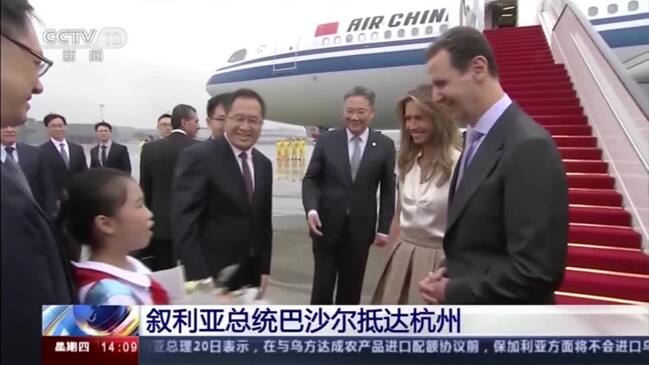
One of the most brilliant Sinologists we’ve produced, Geremie Barme, while not claiming any direct inside knowledge of these events, puts them squarely within the cultural tradition of communism, Leninism, Chinese communism and dictatorships more broadly: “These are the classic signs of a rather incompetent autocracy. It’s also a sign of paranoia. Remember Mao (Zedong) in the 1960s and ’70s always on the move, checking up on the heads of the military provinces. He knew that rebellion was just a moment away. Mao was utterly aware of the art of empire. Xi is from the same tradition but not as good at it. Xi hand-picked all these people in the military bureaucracy (whom he has now sacked). Were they poor choices or does Xi believe in constant stress, in zigzag leadership?”
There was a lot of resentment in China at the totalitarian Covid lockdowns, then the deaths that followed the end of lockdowns without a strong vaccination program. There were even, amazingly, public demonstrations.
Now the economy is a mess, social and political control are harsher than at any time since Mao, foreign policy seems less successful. The consequences for the world are enormous. And everyone knows that Xi is the one making all the decisions.
Uneasy lies the head …



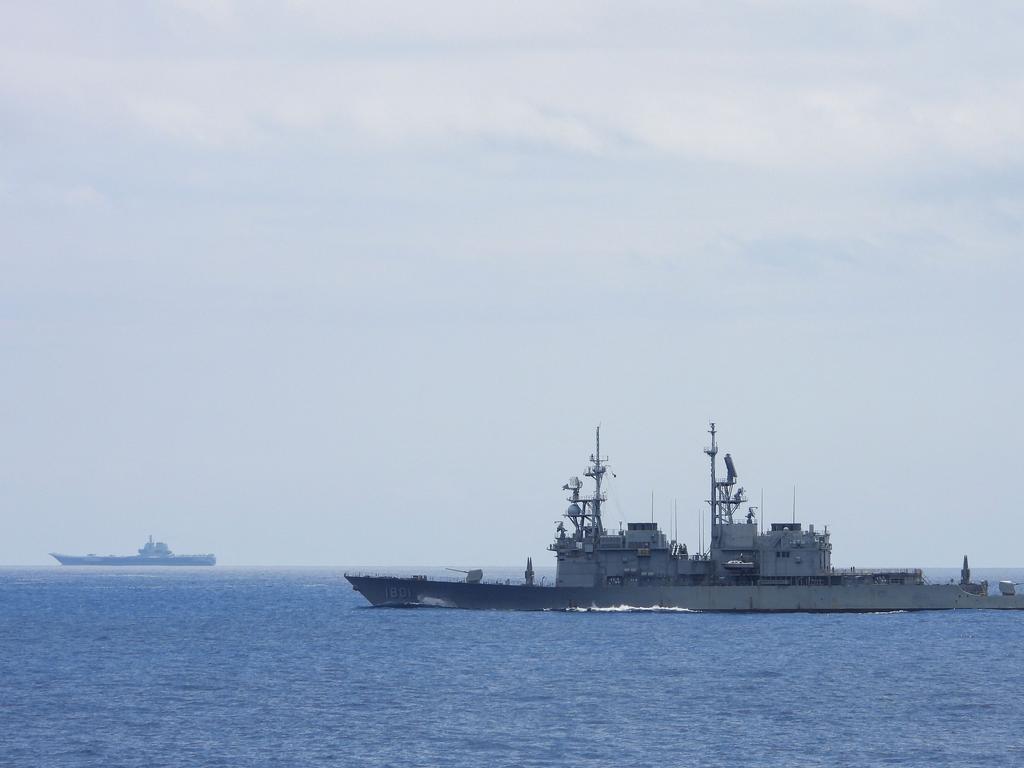




“The dominant contemporary Western scholarly assessments of Chinese Communist Party elite politics in almost every period of the history of the People’s Republic of China have been either dramatically wrong, or a very mixed bag, or in critical respects speculation that cannot be verified on existing evidence. Moreover, in some important cases erroneous findings have remained conventional wisdom even as new information and analysis (have) appeared, supporting alternative interpretations.” – Fred Teiwes, author of Politics and Purges in China, in Handbook of the Politics of China